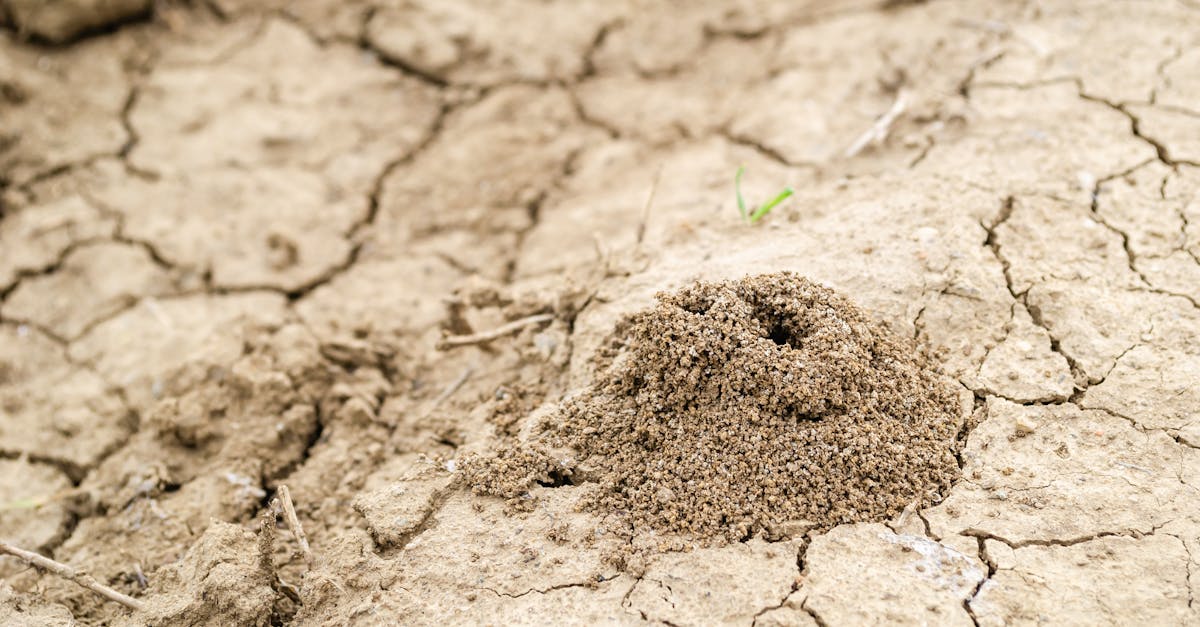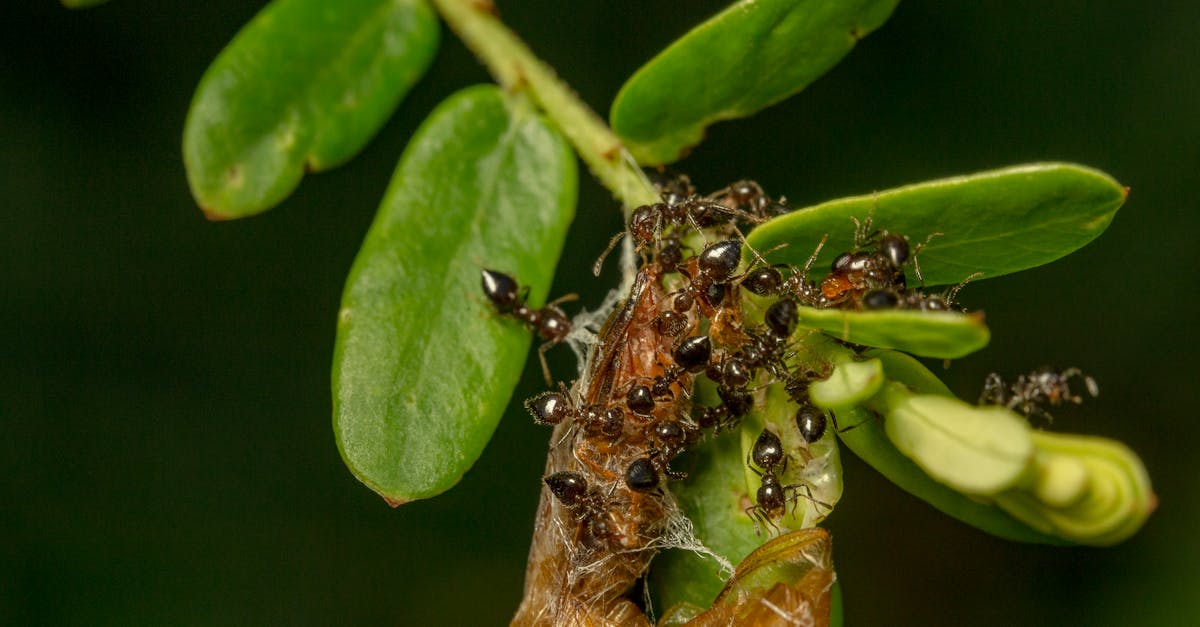Ants are often overlooked as simple pests, but these tiny creatures are far more complex and fascinating than most people realize. In this blog post, we’ll delve into the world of ants, uncovering surprising facts that will change how you view these industrious insects forever.
Ant Societies: A Complex Web of Cooperation
The Intricacies of Ant Colonies
Ant colonies operate with a level of organization and efficiency that rivals human societies. You might have experienced this firsthand if you’ve ever observed an anthill. Interestingly enough, each ant colony functions as a superorganism, where individual ants work together as a single entity. The queen, workers, and soldiers each have specific roles that contribute to the colony’s survival and success.
- Queen Ants: The center of the colony, responsible for laying thousands of eggs.
- Worker Ants: They gather food, care for the queen’s offspring, and maintain the nest.
- Soldier Ants: Defend the colony from predators and rival ants.
I was struck by how these roles are not just assigned but are dynamically adjusted based on the colony’s needs. For example, if the colony is under threat, more workers might become soldiers to defend the nest.
Communication and Coordination
One thing I’ve learned is that ants communicate through pheromones, a form of chemical signaling. This method allows them to convey complex messages such as food location, danger, and even death. Come to think of it, this form of communication is incredibly efficient. The next time you see a line of ants marching towards a food source, remember that they are following a pheromone trail laid down by scout ants.
Ant Strength: The Powerhouses of the Insect World
Incredible Physical Strength
You won’t believe how strong ants are. Studies show that ants can lift objects 10 to 50 times their body weight. This is akin to a human lifting a car! I’ve often wondered how such small creatures can possess such immense strength. The reality is, ants have a unique muscle structure and a lightweight exoskeleton that allows them to perform these Herculean tasks.
Teamwork Makes the Dream Work
Ants are also masters of teamwork. If you’ve ever seen a group of ants carrying a large piece of food together, you’ve witnessed their incredible cooperative capabilities. They use their combined strength to transport items that would be impossible for a single ant to move. If you ask me, this is a testament to the power of collaboration.
Ant Agriculture: The Original Farmers
Fungus Farming
It dawned on me that ants were practicing agriculture long before humans. Leafcutter ants, for instance, cultivate fungus by cutting leaves and bringing them back to their nests. The leaves serve as a substrate for the fungus, which the ants then consume. I’ve found this to be a little-known fact that highlights the ingenuity of these insects.
Aphid Herding
Another fascinating aspect is aphid herding. Some ant species “farm” aphids by protecting them from predators and moving them to better feeding sites. In return, the ants harvest honeydew, a sugary substance produced by the aphids. Personally, I’ve come to realize that this mutualistic relationship is a remarkable example of interspecies cooperation.
Ant Warfare: Battles and Strategies
Territorial Battles
The thing is, ant colonies are not always peaceful. They often engage in territorial battles that can be as brutal as any human conflict. These wars are fought over resources, territory, and dominance. From what I’ve seen, these battles can involve thousands of ants and can last for days or even weeks.
Tactical Maneuvers
Interestingly enough, ants employ tactical maneuvers during these conflicts. Some species use decoys, while others employ pincer movements to outflank their enemies. I was just thinking about how these strategies are eerily similar to human military tactics. Now you know that ants are not just mindless insects but are capable of complex strategic thinking.
Ant Adaptability: Surviving Against All Odds
Extreme Environments
Ants have adapted to a wide range of environments, from the scorching deserts to the freezing Arctic. You might find this helpful if you’re trying to understand how they manage to survive in such extreme conditions. The secret lies in their ability to regulate their body temperature and their highly adaptable social structure.
Invasive Species
A little-known fact is that some ant species are incredibly invasive. The Argentine ant, for example, has spread to every continent except Antarctica. These invasive ants can outcompete and displace native species, causing significant ecological disruption. I’ve noticed that this adaptability makes ants one of the most resilient creatures on Earth.
The Role of Ants in Ecosystems
Soil Aeration and Nutrient Cycling
Ants play a crucial role in soil aeration and nutrient cycling. By digging tunnels, they aerate the soil, allowing water and nutrients to penetrate deeper. This process is essential for plant growth. I’ve been there, marveling at how such small creatures can have such a significant impact on their environment.
Pest Control
Another key benefit of ants is their role in pest control. Many ant species prey on other insects, helping to keep pest populations in check. If you’ve ever noticed fewer pests in your garden, you might relate to this and have ants to thank for it. Their predatory behavior makes them natural pest controllers.
The Fascinating World of Ants
Ant-Inspired Technology
The study of ants has inspired numerous technological advancements. For instance, algorithms used in computer networks and robotics have been modeled after ant behavior. I’ve learned that these algorithms, known as “ant colony optimization,” are used to solve complex problems such as routing and scheduling.
Ants in Popular Culture
Ants have also made their mark in popular culture. From movies like “Ant-Man” to books and documentaries, these tiny creatures have captured human imagination. I was just thinking about how ants have become symbols of hard work, cooperation, and resilience.
Final Thoughts: The Next Time You See an Ant…
Now that you’ve learned about the incredible world of ants, you might find yourself looking at them in a new light. These tiny insects are far more than mere pests; they are complex, fascinating creatures with a lot to teach us about cooperation, strength, and adaptability.
So, the next time you see an ant, take a moment to appreciate the marvels of nature that it represents. Whether you’re an entomologist, a nature enthusiast, or just someone curious about the world, ants offer endless opportunities for discovery and wonder.
Call to Action
If you’ve ever been intrigued by the natural world, consider taking a closer look at the ants in your own backyard. You might be surprised by what you find. Share this post with friends and family to spread the fascinating facts about ants. And, if you’re interested in learning more, check out some of the latest research on ant behavior and ecology. The world of ants is waiting for you to explore!
By incorporating these shocking facts about ants into your understanding of the natural world, you’ll gain a deeper appreciation for these incredible insects. From their complex societies to their remarkable strength and adaptability, ants are truly one of nature’s wonders.











